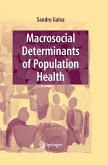Practices from the Americas
Edited by Louise Potvin, David V. McQueen, and Mary Hall
More and more, health promotion is a crucial component of public health, to the extent that public health interventions are called on to prove their effectiveness and appraised for scientific validity, a practice many in the field consider self-defeating. Health Promotion Evaluation Practices in the Americas cogently demonstrates that scientific rigor and the goals of health promotion are less in conflict than commonly thought, synthesizing multiple traditions from countries throughout North, Central, and South America (and across the developed-to-developing-world continuum) for a volume that is both diverse in scope and unified in purpose.
The book's examples-representing robust theoretical and practical literatures as well as initiatives from Rio de Janeiro to American Indian communities-explain why health promotion evaluation projects require different guidelines from mainstream evaluative work. The editors identify core humanitarian principles associated with health promotion (participation, empowerment, equity, sustainability, intersectoral action, multistrategy, and contextualism), while chapters highlight challenges that must be mastered to keep these principles and scientific objectives in sync, including:
- Building health promotion values into evaluation research projects.
- Expanding the use of evaluation in health promotion.
- Developing meaningful evaluation questions.
- Distinguishing between community-based participation research and evaluation-based participation.
- Evaluating specifically for equity.
- Designing initiatives to foster lasting socialchange.
The applied knowledge in Health Promotion Evaluation Practices in the Americas: Values and Research can bring the goals of intervention into sharper focus for practitioners, evaluators, and decision-makers and facilitate communication on all sides-necessary steps to progress from study findings to real-world action.
Dieser Download kann aus rechtlichen Gründen nur mit Rechnungsadresse in A, B, BG, CY, CZ, D, DK, EW, E, FIN, F, GR, HR, H, IRL, I, LT, L, LR, M, NL, PL, P, R, S, SLO, SK ausgeliefert werden.









